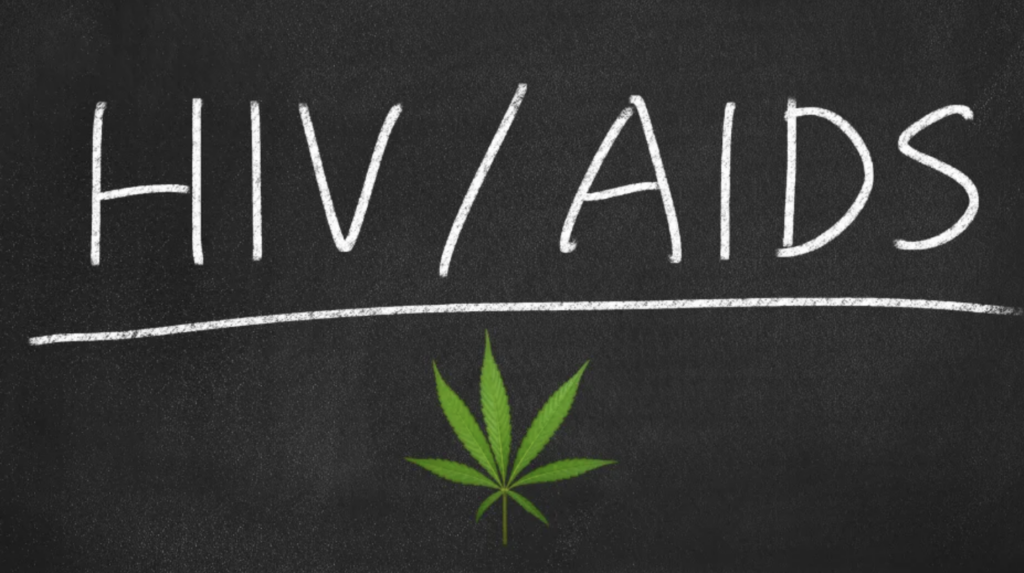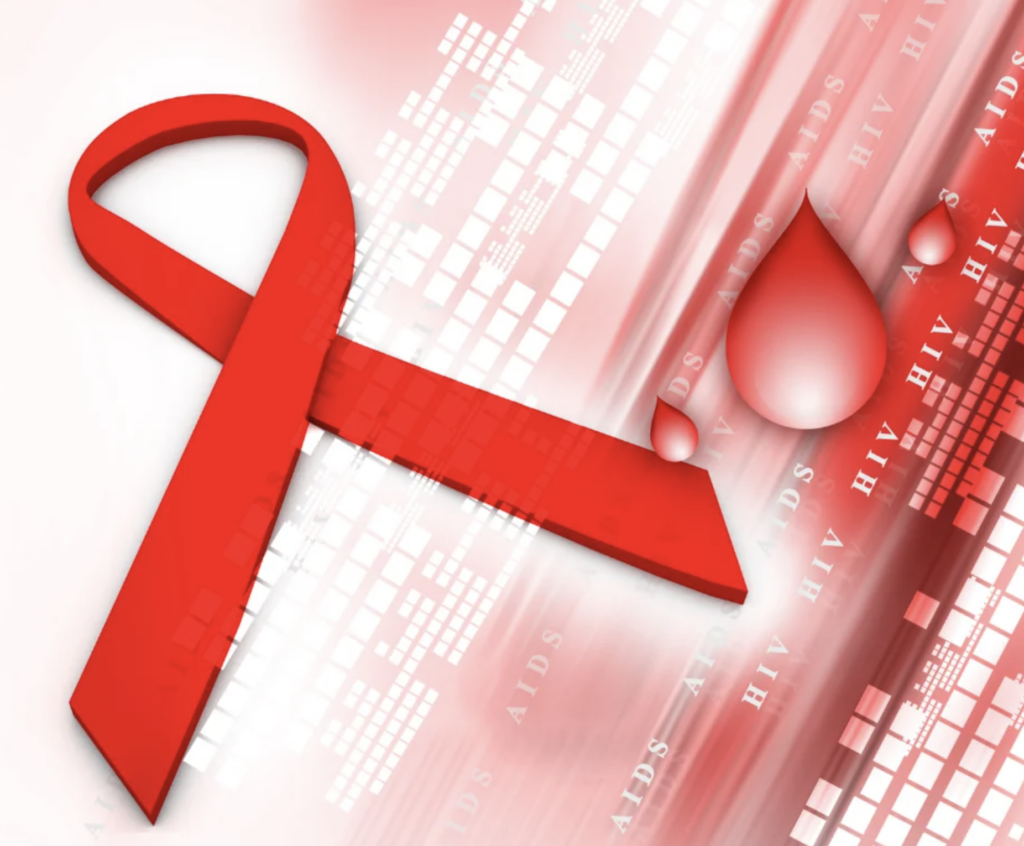
Medical cannabis offers a plethora of therapeutic benefits. This is something that is undeniable considering the substantial number of research studies proving its efficiency in treating a variety of ailments, as well as the numerous anecdotal stories from medical cannabis patients. Cannabis has been utilized by cultures around the world for centuries for its various therapeutic attributes. Some of the most common conditions and elements being addressed by medical cannabis successfully include chronic pain, epileptic conditions, severe nausea, migraines, neuropathic pain, and various autoimmune disorders, to name a few. Among the qualifying conditions listed in many states to become a medical cannabis patient is HIV/AIDS. Let’s explore how this disease set may be benefited from medical cannabis.
What Is HIV/AIDS?
HIV is short for the human immunodeficiency virus. This virus is characterized by its attack on the body’s immune system and its ability to lead to AIDS if not treated. In the case of HIV, the attack is directly on white blood cells known as CD4 cells. As the cells are destroyed by HIV, it leads to the weakening of immunity against various infections, including fungal infections, severe bacterial infections, and even some cancers, according to the World Health Organization. AIDS is short for acquired immunodeficiency syndrome, which is the third stage of an HIV infection. HIV is spread most commonly through sexual intercourse; however, it can also be transmitted through direct contact with infected blood, vaginal fluids, or semen.
Symptoms
In the beginning stages of an HIV infection, many patients will experience symptoms very similar to that of having the flu. High fevers, severe fatigue, and sore throat are just the beginning. As the disease progresses, the symptoms are typically asymptomatic until reaching the state of HIV infection becoming AIDS. This is where debilitating symptoms such as severe weight loss, recurrent infections, fevers and night sweats, and severe fatigue take hold.
What Is the Prevalence and Risk Of HIV/AIDS?
According to the World Health Organization, in 2020, there were 37.7 million people living with HIV globally. WHO also estimates that roughly 16% of all people living with HIV were not aware that they were infected with HIV. There are several things that can increase your risk for an HIV infection, such as having unprotected sex, injecting drugs in a social setting with others, and having a history of sexually transmitted infections such as chlamydia, syphilis, genital herpes, or others. Those that work in jobs that may expose them to bodily fluids are also at a higher risk, such as those working in labs, healthcare settings, and prisons. Other factors such as having multiple sexual partners, having a partner that has had several sexual partners, or living in places with a high HIV prevalence can also increase your risk for transmitting the disease.
What Are the Treatment Options For HIV/AIDS?
There is currently no cure for HIV/AIDS; once someone has an HIV infection, they will live with it for the remainder of their lives. Fortunately, with treatments such as antiretroviral treatment ART for short, many HIV patients have been able to prevent the infection from progressing to AIDS. This treatment, when utilized consistently, has also been shown to help prevent the spread of HIV to others. As the symptoms experienced can vary between patients, they are treated as they are presented with things such as stimulants, anti-nausea/vomiting medications, pain medications, and others.

What About Medical Cannabis for HIV/AIDS Patients?
While some may not be aware of it, one of the leading legalization activists that helped to get medical cannabis approved for patients in the state of California via Proposition 215, Dennis Peron, was fueled by the fire of losing his lover to this condition and him having seen just how beneficial it was to him in his end of days. Additionally, a major cannabis activist by the name of Brownie Mary was also a big part of the HIV/AIDS community in the late ’80s and early ’90s. Mary was arrested on numerous occasions for baking and supplying cannabis-infused brownies to HIV/AIDS patients during the height of the epidemic.
While medical cannabis cannot cure HIV or prevent HIV from developing into AIDS, it can help patients find relief from many different symptoms associated with the conditions as well as side effects produced by their common treatments. Most commonly, HIV and AIDS patients utilize medical cannabis to help with things such as their lack of appetite, severe nausea, weight loss issues, and nerve pain.
What Does the Science Say About Medical Cannabis for HIV/AIDS?
Numerous studies have proven cannabis’ efficacy in relieving nausea and vomiting. A recent study by researchers at the University of New Mexico found that of the individuals utilizing cannabis for nausea relief that over 96% of them reported relief within as little as 1-hour post-consumption. With nausea and vomiting being major issues for most HIV/AIDS patients, medical cannabis could be just what is needed to provide consistent relief without the dangers of pharmaceutical use.
It is also quite common knowledge that THC, an active psychoactive cannabinoid in cannabis, stimulates the appetite, as consuming cannabis has long been known to lead to “the munchies”! This has also been validated through studies such as this one. With many HIV/AIDS patients experiencing severe loss of appetite, be it from nausea/vomiting or due to the treatments they are doing, medical cannabis could hold the key to preventing HIV/AIDS patients from developing wasting syndrome and being unable to eat.
In this 2021 study, researchers stated that “Persistent inflammation occurs in people with HIV (PWH) and has many downstream adverse effects including myocardial infarction, neurocognitive impairment, and death.” Luckily, cannabis has been found to be a powerful anti-inflammatory that could help to mitigate the persistent inflammation that leads to various symptoms for HIV/AIDS patients. This review from 2021 found that “In 22 studies where CBD, CBG, or CBD in combination with THC were administered, a reduction in the levels of at least one inflammatory cytokine was observed, and in 24 studies, some improvements in disease or disability were apparent.”
How to Get Your Medical Marijuana Recommendation for HIV/AIDS If you are an HIV/AIDS patient that is looking to utilize medical marijuana and happen to live in one of the many states that offer medical cannabis programs, such as California, Missouri, Oklahoma, or New York, you are in luck. Many states have included HIV/AIDS as a qualifying condition for medical cannabis patient status. To become a medical cannabis patient, book an appointment today to receive your medical cannabis recommendation.
Disclaimer: The information, including but not limited to, text, graphics, images and other material contained in this article is for informational purposes only. No material from this article is intended to be a substitute for professional medical advice, diagnosis, or treatment. Always seek the advice of your physician or other qualified health care provider with any questions you may have regarding a medical condition or treatment before undertaking a new health care regimen. Never disregard professional medical advice or delay in seeking it because of something you have read on this website.
